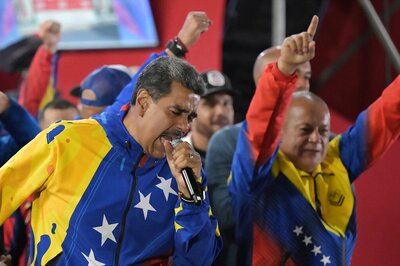
views
One day before the 72nd Independence Day of India, the Supreme Court admitted a petition filed by 356 Army officers and soldiers expressing concerns over the dilution of Armed Forces Special Powers Act (AFSPA), and claiming that “an extraordinary situation of confusion has arisen with respect to their protection from prosecution as defined under Section 6 and 7 of AFSPA”.
The background to this case dates back to July 2016, when, hearing a plea on 1,528 cases of alleged fake encounters in Manipur, the Supreme Court observed that “there is no concept of absolute immunity from trial by criminal court”. As many as 41 of these cases were subsequently shortlisted for initial investigation by the CBI. Last month, the apex court came down heavily on the CBI Director for the slow pace of investigation and asked him to arrest and hold custodial investigations of the accused, if required. Stung into action, on July 31, the CBI registered a murder case against an Army officer and seven others in the killing of a 12-year-old in Manipur in 2009. This was perhaps the trigger for the petition filed by the group of Army men in the Supreme Court.
The case will be keenly watched for its debate on the aspect of immunity provided to the Army while operating in Jammu and Kashmir and the Northeast. By suggesting that the CBI can carry out arrests and custodial investigations, the Supreme Court has somewhat diluted the principle on immunity, at least on paper. However, important as these legal discussions are, the whole case has far greater ramifications for the Army.
Firstly, the complete investigation process could have a draining impact on the Army’s psyche and morale. The CBI has gone slow till now, but criticism by the Supreme Court could see CBI teams descending on scores of Army units. Decade-old records will be sought, and hundreds of witnesses questioned. Soldiers who have retired will be called from their homes. They do not have the legal cover of an olive-green uniform and will come fearfully, if at all. How will their worries of being arrested and charged for a crime be assuaged, is a key question.
In peace stations, the units live in large cantonments, housing dozens of units. Each will watch the investigation with anxiety. Some of these units would be readying themselves to move into an operational area and would be anxious to learn the ‘right lessons’ to avoid future CBI inquiries. Investigations conducted in units that are currently engaged in counterterror operations will have a more immediate effect. In its 2016 judgment, the Supreme Court observed, “In the enquiry, it might turn out that the victim was in fact an enemy and an unprovoked aggressor and was killed in an exchange of fire. But the question for enquiry would still remain whether excessive or retaliatory force was used to kill that enemy.” With these words in his head, how would a soldier act when facing an armed terrorist?
It is also extremely unfortunate to see that Army men, singly or collectively, are going to the courts to fight cases that have an institutional significance. We earlier saw Major Aditya’s father approach the Supreme Court, challenging the filing of an FIR against his son in Jammu and Kashmir. A soldier owes a duty to the nation, and this duty, in a democracy, is carried out in compliance with the political leadership that has been elected to run the country. In return, the political leadership is responsible for providing the means to a soldier to carry out his duties. This includes his welfare, his equipment, a degree of respect, and legal measures to safeguard him when he is asked to tackle internal security situations. If individuals have to fight for their rights when performing duties in their line of official work, it is a sad day and could adversely impact on the nature of civil-military relations. The government should pursue this case in the Supreme Court, not individual soldiers.
The Supreme Court judgment also raises serious questions on the military judicial system. There has been criticism that the military court-martials serve only to whitewash human rights violations and do not meet the ends of justice. Some of this criticism is justified and there could be cases of extra-judicial actions that merit a strong legal action. However, by keeping the Army completely out of the investigations, we have perhaps adopted a path that could ultimately dilute the manner in which the Army maintains discipline. The military justice system has great value and is based not only on laws but also traditions of the unique character of the military. Its devaluation will be of no help to anyone.
The answer perhaps lies in permitting the Army, rather than the CBI, to carry out the investigation into cases of human rights violations. Some specific cases could be monitored by the Supreme Court. Human rights groups would no doubt raise a red flag on this, quoting history of cases like Kunan Poshpora. However, it is also true that the military, as an institution, has a strong moral and ethical character. If, in the past, it has accepted a deviation from this, it would be better for the Army to honestly peer inwards and heal its own faults. Getting rid of some rogue elements will only enhance the Army’s reputation.
(The author is former Northern Commander, Indian Army, under whose leadership India carried out surgical strikes against Pakistan in 2016. Views are personal.)

















Comments
0 comment